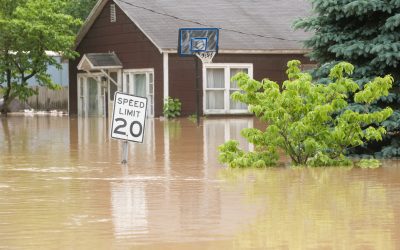Why Would a Water Damage Claim Be Denied by Insurance Companies?
Filing a water damage claim should provide financial relief after an unexpected incident, but many homeowners are surprised when their insurance company refuses to pay. Understanding why a water damage claim may be denied helps you protect your property and your rights as a policyholder. In this article, we’ll explain the most common reasons for denial, how insurers review claims, and what steps you can take if you face a denial. Whether you are dealing with sudden pipe bursts, leaks, or storm-related flooding, knowing the reasons behind a denied claim can help you prevent costly mistakes.
How Insurance Companies Evaluate Water Damage Claims
When you file a water damage claim, your insurance company will assign an adjuster to investigate. The adjuster reviews your policy coverage, the cause of the damage, and the extent of repairs required. Insurers compare your claim to the specific terms, conditions, and exclusions in your policy. If the damage doesn’t meet those requirements, the claim may be denied. Policies often distinguish between “sudden and accidental” damage, which is covered, and “gradual damage” caused by neglect or maintenance issues, which is not.
Common Reasons Why a Water Damage Claim May Be Denied
Lack of Policy Coverage
One of the main reasons insurance companies deny water damage claims is that the policy simply does not cover the type of water damage you experienced. For example, most standard homeowners’ policies exclude flood damage caused by rising groundwater or heavy rain. Instead, flood protection requires a separate policy through the National Flood Insurance Program (NFIP) or a private insurer. If the source of water damage falls into an uncovered category, the insurer has grounds to deny the claim.
Gradual or Long-Term Damage
Insurance is designed to cover sudden events, not ongoing issues. If your water damage results from a slow leak, corrosion, or wear and tear over time, the insurer may argue it was preventable with routine maintenance. Mold damage caused by weeks or months of unnoticed water seepage often leads to denial because it is considered neglect rather than a covered accident.
Late Reporting of the Claim
Timing matters in the claims process. Most insurance policies require homeowners to notify the insurer “promptly” or “within a reasonable time” after discovering damage. If you wait weeks or months before reporting, the insurer might deny your water damage claim, arguing that the delay made it impossible to verify the cause or that the damage worsened due to inaction.
Improper Documentation
When filing a water damage claim, documentation is critical. If you fail to provide photos, videos, receipts, or repair estimates, your insurer may lack the evidence needed to validate the claim. Incomplete paperwork or inconsistent details can also raise red flags that result in denial.
Excluded Causes of Loss
Policies often contain exclusions that leave certain scenarios uncovered. Common exclusions include sewer or drain backups, flooding, neglect, and intentional acts. For instance, if water damage came from a sump pump failure and you don’t have an additional endorsement, your claim may be denied. Reviewing your policy exclusions before filing a claim can help you understand potential risks.
Misrepresentation or Suspicion of Fraud
If an insurer believes that a homeowner exaggerated the extent of the damage or misrepresented the cause, they may deny the claim. Even unintentional misstatements can create suspicion. Accuracy and transparency in your claim submission are essential to avoid this outcome.
Steps to Take if Your Water Damage Claim is Denied
Review the Denial Letter
When your water damage claim is denied, the insurer must provide a written explanation. Carefully review this letter to understand the exact reason. Sometimes denials are based on missing information that can be corrected.
Compare Against Your Policy
Pull out your policy and compare the denial with your actual coverage terms. Look for sections that address sudden water damage, exclusions, and endorsements you may have purchased. This step helps you verify whether the denial was valid or if you have grounds to appeal.
File an Appeal
If you believe your water damage claim was wrongfully denied, you can file an appeal. This process often involves submitting additional evidence, such as repair estimates, contractor reports, or expert opinions, to challenge the insurer’s findings.
Seek Professional Help
Many homeowners turn to licensed public adjusters or attorneys who specialize in water damage claims. Professionals understand insurance company tactics and can negotiate on your behalf. In some cases, hiring outside help results in the claim being reopened and approved.
For example, FEMA provides resources for homeowners struggling with water damage and insurance disputes (source) while state insurance departments also offer complaint resolution services (source).
Preventing Water Damage Claim Denials in the Future
While not every claim denial can be avoided, proactive steps reduce your risk:
-
Inspect plumbing systems regularly to catch leaks early.
-
Maintain your roof and gutters to prevent stormwater intrusion.
-
Install water alarms and sump pumps where needed.
-
Keep digital records of property maintenance, repairs, and receipts.
-
Review your insurance policy annually and consider endorsements for additional protection, such as sewer backup or flood coverage.
By maintaining your home and keeping thorough records, you strengthen your position in case you ever need to file another claim.
Why Would a Water Damage Claim Be Denied by Insurance Companies? (CTA)
If you are facing a denied claim, you don’t have to navigate the process alone. At Care Public Adjusters, we help homeowners challenge unfair insurance decisions. Learn more about USAA Denied Water Damage Claim and how our experts can assist you in recovering what you deserve. For storm or disaster-related Water Damage Claims, our team ensures your rights are protected every step of the way.
FAQs
Q1: Why would a water damage claim be denied if the damage was sudden?
A: Even sudden water damage claims can be denied if the cause is excluded from your policy, such as flooding, or if the insurer believes the event resulted from negligence.
Q2: Can insurance companies deny a water damage claim for mold?
A: Yes. Mold often results from long-term leaks or neglected maintenance, which are not covered under standard policies. Some policies offer limited mold coverage with endorsements.
Q3: What should I do immediately if my water damage claim is denied?
A: Review the denial letter, compare it with your policy, gather additional evidence, and consider filing an appeal. Seeking help from a public adjuster can strengthen your case.
Q4: Does homeowners’ insurance cover water damage from storms?
A: It depends on the type of damage. Rain entering through a damaged roof may be covered, but flooding from rising water requires separate flood insurance.
Q5: Can a late claim filing result in denial?
A: Yes. Delayed reporting can prevent insurers from verifying the damage and may be considered a breach of your policy’s “prompt notice” requirement.
Q6: How can I avoid a denied water damage claim in the future?
A: Perform routine maintenance, document repairs, and update your policy to include endorsements for common exclusions like sewer backups or flood coverage.



